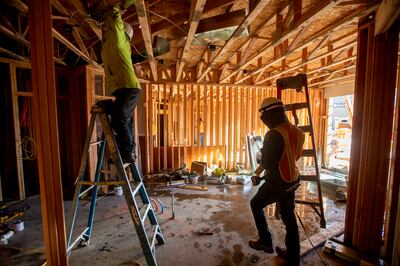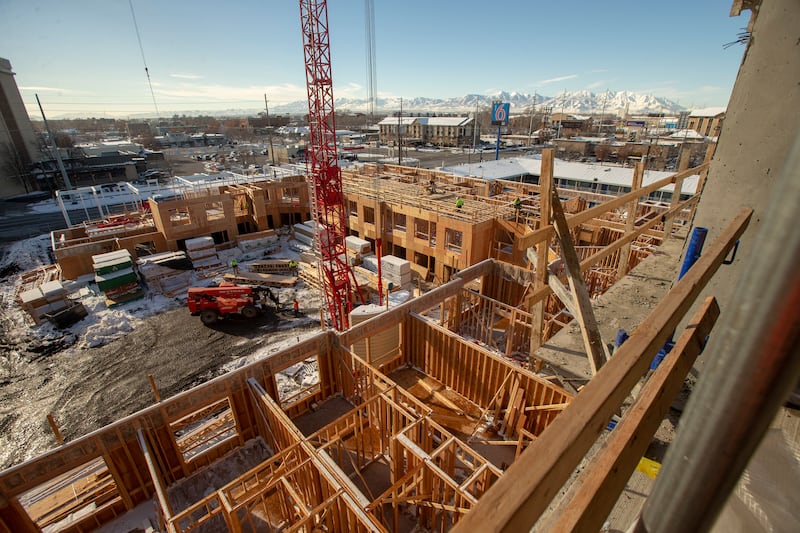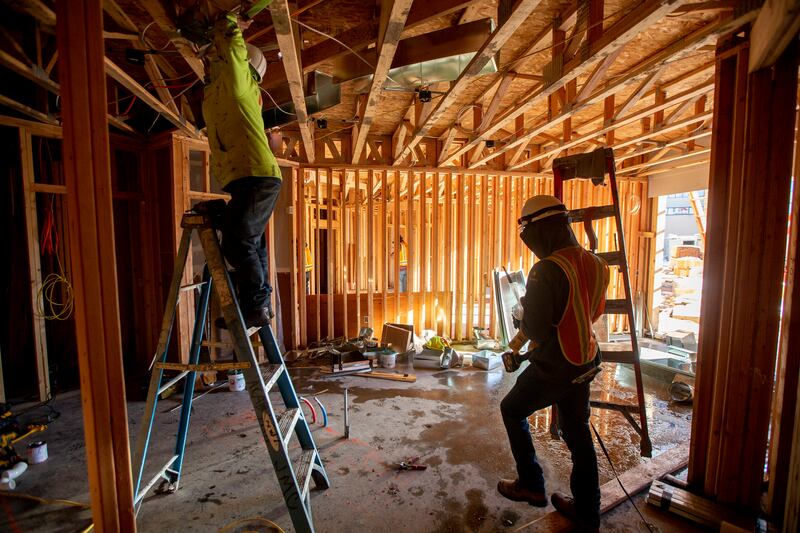SALT LAKE CITY — After their efforts to pump more than $24 million in new money toward affordable housing fell flat during the 2019 general session, a Utah commission is regrouping.
But while tax reform continues to loom — expected for a special session later this year — the fight for any new state money for affordable housing may be shelved until next year.
Sen. Jake Anderegg, R-Lehi, who sponsored legislation that got stripped of its $24 million fiscal note in the final night of the 2019 session, previously said he'd "received assurances" that there will be funding for the bill when lawmakers convene for the special session. But this past week, Anderegg briefed the state's newly convened Commission on Housing Affordability on a new game plan to try again for that money during next year's general session.
Yet Anderegg also didn't rule out an attempt to go after the money during the tax reform special session in an interview with the Deseret News on Friday.

"There's always the possibility, I'm just not sure what that probability is," he said, adding that it's too soon to tell whether tax reform negotiations will include an opportunity to lobby for the affordable housing money.
"The reality is, we don't know yet if there will be a special session," Anderegg said. Legislative leaders didn't begin formally discussing putting together the tax reform task force until this week.
If the opportunity does come during a special session, "we'll push for it," Anderegg said, "but the stars have to align a little."
"In a special session, we have the full might and power of the Utah Legislature, so we could appropriate any and all of that money if we are ready to do so," Anderegg said. "That being said, there is a lot of work to be done for that to even be possible. So we'll have to see."
So in the meantime, the state's Commission on Housing Affordability — a body formed to tackle Utah's deepening housing crisis — is pushing ahead on a timeline to have a strong case by next year's session for that $24 million, money that would have provided $20 million one-time and $4 million ongoing into the Olene Walker Housing Loan Fund, which is used for loans and grants to develop moderate-income housing.
But even without the $24 million, SB34 still enacts new policies to incentivize local officials to plan and zone for affordable housing by leveraging their eligibility to apply for about $700 million in state transportation funds — a step Anderegg has still called a "critical" win for affordable housing, despite its $0 fiscal note.
Housing advocates were deflated when that $24 million was stripped from SB34 by lawmakers. June Hiatt, director of policy and advocacy for the Utah Housing Coalition, said at the time it's frustrating that lawmakers didn't prioritize the funding despite a big push from both housing advocates and developers alike.
"Quite frankly, if the state's going to take this seriously, they need to put their money where their mouth is," Hiatt said at the time. "To once again be told, 'We don't have the money,' it's harder to hear every year."
But Anderegg told the state's Commission on Housing Affordability on Wednesday those efforts faltered because he and others admittedly fell short on explaining exactly how the money would be used.
That, paired with the "scuttlebutt" surrounding tax reform and the budget "held hostage" by those negotiations, Anderegg said affordable housing funding fell victim.
"I hate to say this, but I don't think we sold either House or Senate members very well on the finance side of this," Anderegg told the commission. "We threw a big chunk of money into one pot, but we didn't actually explore any of the other aspects of what could be done."
Anderegg said SB34 backers "didn't properly, I think, delve deep enough" on the details with legislative leaders and the Executive Appropriations Committee to solidify support for the money.
He urged the commission to use interim time to develop more specific proposals before next year's session. "We need to delve into finance, how to maximize the dollars, how to tell the story of what appropriations would to do move the needle," Anderegg said.

"And that's where I fell down, that's where we fell down, as far as getting Executive Appropriations to understand what they were going to get with the $24 million," he said. "It's a bit of a blessing in disguise that we didn't get the money because now we can create a better definition of how the money is going to be spent."
Anderegg added he's not interested in backing an issue that's doomed to founder.
"I'll flat out tell you, I would rather be taken off this commission if we're just going to run the rigmarole, take it to the legislative session, and it falls on deaf ears."
Mike Ostermiller, who represents the Utah Association of Realtors on the commission, acknowledged the commission could do better "connecting the dots between the policy, the money and the solution," but at least now there's "no doubting the fact that there is a problem."
"The legislation that we put forward is the step in the right direction from a policy perspective," Ostermiller said. "All of that was a message that was received loud and clear."
Ostermiller added that he expects there will be a "huge appetite" to fund affordable housing once tax reform is handled.
But if or when that will happen remains to be seen.




